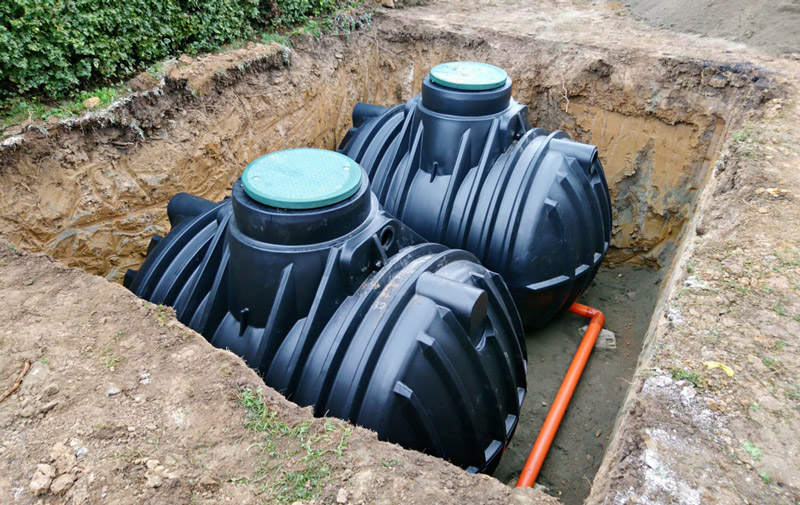
Septic tanks are highly important for the many households that make use of them, but plenty of people are entirely unaware of them and how they function – as well as the many benefits they can allow you to reap.
A septic tank is an underground chamber wherein waste matter is stored and eventually decomposed using anaerobic bacteria – these are micro-organisms that do not require oxygen for growth. They are used as an alternative to the main sewage line and so are particularly common in rural areas away from cities and towns.
The waste products themselves naturally separate into three layers – on top is a combination of grease and oil followed by the wastewater and then heavier sludge particles at the bottom. The container is usually made out of steel, concrete, or fibreglass and is connected by pipes to a drain field that filters the wastewater; the tank and field combine to form an onsite sewage facility.
First of all, the sewage from the house is piped into the septic tank, where it is slowly collected. The sewage then forms the three layers as mentioned above slowly over time. The anaerobic bacteria within the tank gets to work on separating as many liquids as possible from the solid waste. This reduces the amount of solid waste within the tank, but only to a moderate degree – the remnants will eventually be dealt with by maintenance services.
The resulting wastewater products are, as mentioned above, discharged into the drain field, where it then percolates through and is accepted by the soil – turning it into groundwater. The waste that remains needs to be removed, as sludge accumulation is faster than the rate of decomposition, and this removal process is performed using a vacuum truck every three to five years. If this is not done when needed, there is a risk of raw faecal sludge (also known as septage) being transmitted to the drain field.
This might seem like a complicated process, but it is effective and efficient. Needing to pay for desludging may sound less than ideal, but this only happens every three to five years. The benefits of a septic tank are numerous, namely:
A septic tank is not only better for the environment, but they’re better for your bank account. At Wet Waste, we have been the go-to for liquid waste removal since 1996 and are fully licensed and insured for cleaning septic tanks.
Contact us today if your septic tank needs its regular check-up!

Liquid Waste Removal and Septic Tank Cleaning on the Gold Coast, Brisbane, Redlands, Logan and Ipswich Shires.
Call Mark: 1300 552 017
E-mail: [email protected]